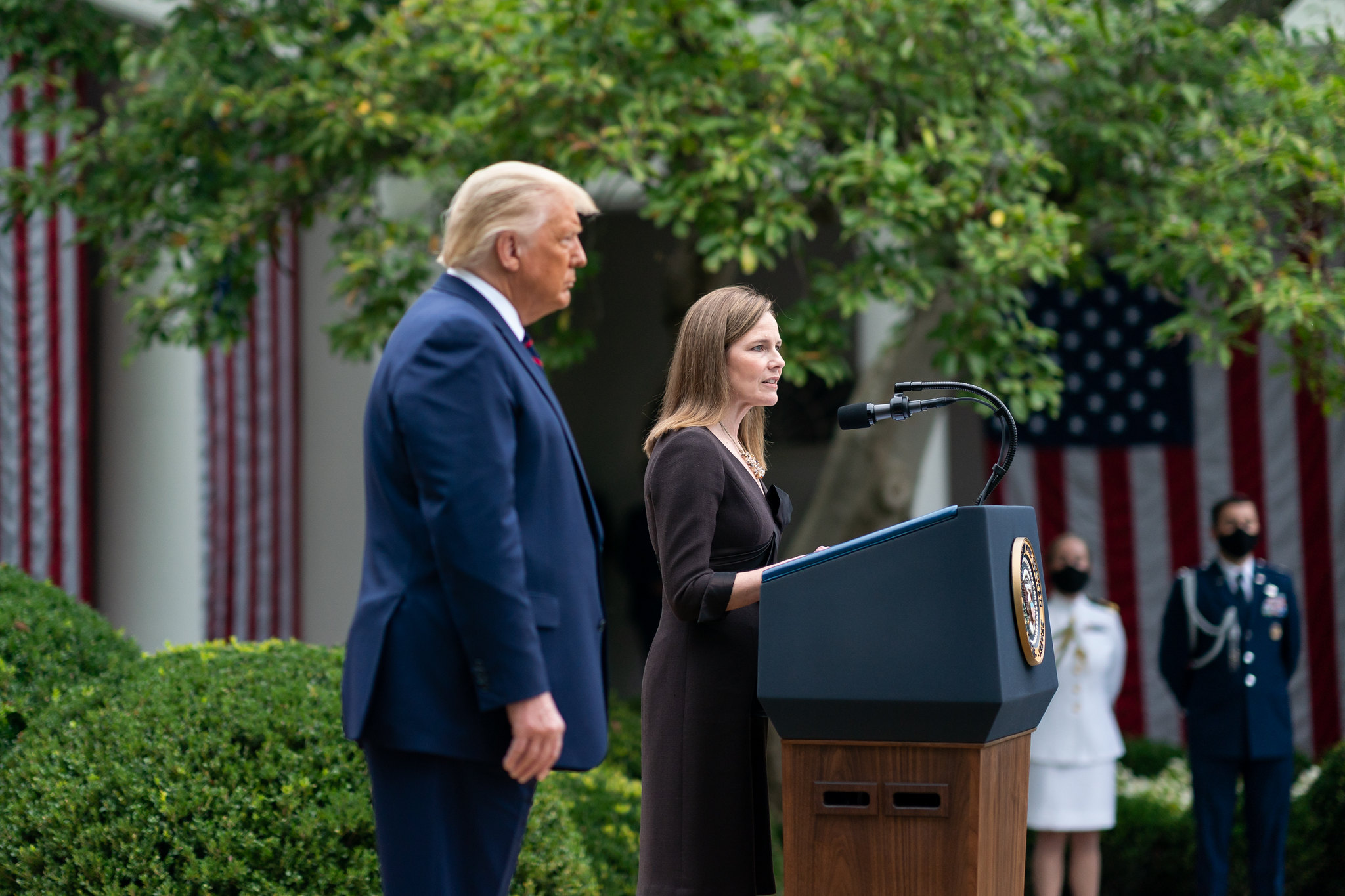
U.S. Sen. Chuck Grassley asked Supreme Court nominee Amy Coney Barrett on Tuesday whether she has made any promises to vote to repeal the Affordable Care Act, as he sought to counter arguments from Democratic senators that she would unravel the landmark health care law.
Barrett told the Iowa Republican that no one in the Trump administration has asked her to commit to rule in a certain way on any case that may come before the top court, including the challenge to the ACA that’s scheduled for arguments next month.
“I was never asked” to support the challenge to the ACA, Barrett said, “and if I had been, that would have been a short conversation.”
Grassley was the third member of the Senate Judiciary Committee to question Barrett on Tuesday, as the panel shifted to the question-and-answer portion of Barrett’s confirmation hearings after more than four hours of opening statements Monday. Each senator had 30 minutes to question Barrett during the first round of questions.
Barrett, 48, a judge on the 7th Circuit Court of Appeals, was tapped by Trump to replace the late Justice Ruth Bader Ginsburg, who died Sept. 18. Barrett graduated from Notre Dame’s law school and has served on the faculty there.
Grassley—who chaired Judiciary during the last two series of contentious Supreme Court confirmation hearings—was present in person Monday and Tuesday while several of his colleagues participated remotely.
The 87-year-old wore a face mask, according to pool reports from reporters in the hearing room. Grassley removed it when it was his turn to speak.
In his opening remarks Monday and again at the beginning of his period for questions Tuesday, Grassley criticized Democrats for what he described as “baseless claims and scare tactics” regarding Barrett’s views as a devout Catholic, as well as the potential effect her confirmation could have on the fate of the ACA.
Grassley said Barrett should do as Ginsburg did in her confirmation hearing, and offer “no forecasts, no hints” on how she would vote on a particular case. He quoted Barrett herself saying that judges must apply the law as written, “setting aside any policy views they might hold.”
“You’ve got a lifetime appointment,” Grassley said. “If you do law-making, people can’t vote you out of office. Law-making is our job.”
Grassley also asked Barrett about her view of how much weight judges should give to legislators’ intent when they are interpreting what a law means.
Barrett replied that she believes judges must rely on what the text of a law says, but she said there could be some instances where she would look to the legislative history of a statute, such as to see if a drafting error had led to an “unthinkable” result.
Grassley then questioned her use of that approach when Barrett dissented in a resentencing case that followed the First Step Act, a criminal justice reform law that Grassley was involved in drafting. The case, United States v. Uriarte, involved whether someone whose sentence had been vacated before that law took effect could benefit from its sentencing reform provisions when that individual received a new sentence.
A majority of the 7th Circuit Court supported doing so, but Barrett and other judges dissented, arguing that the law referred to those who had not already been sentenced, and would not apply to those who had their sentence vacated because they had already been sentenced.
Grassley said that while he agreed with Barrett’s general approach of relying on the literal interpretation of a law, he disagreed with her conclusion in that case.
Barrett responded that there’s “certainly unfairness” wherever you draw the line of who gets to benefit from a particular law.
She pointed to the co-defendant of that case, who was tried separately, noting that his case moved through the courts faster, so he was not eligible for the sentencing reform provisions on the First Step Act, while the defendant that did receive a shorter sentence was the one who was “more culpable.”
The question-and-answer portion of Barrett’s hearing is expected to continue through Wednesday, with each senator getting additional opportunities to ask questions.
This article appears in partnership with Georgia Recorder







